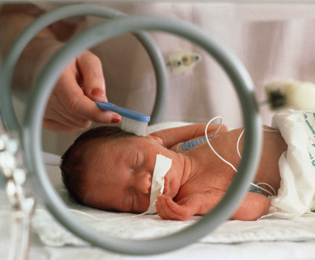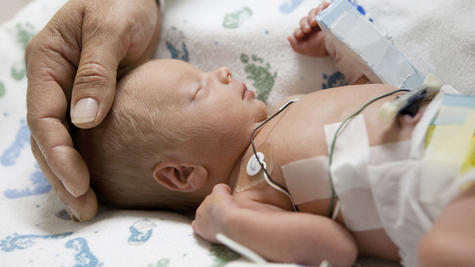
Premature birth is a risk that happen to many pregnant women. The premature born between 20 and 37 weeks. A full term of pregnancy is at least 40 weeks.
Most of preterm babies are smaller than normal baby and also have a physical and development problems.

There’s some risk factors that could potentially increase the risk to have premature baby such as :-
1. Personal history
- The most important risk factor for preterm birth is a prior history of having a premature baby. In fact, studies show women who previously had a preterm birth are between 30 to 50 percent likely to have a subsequent one.
2. Birth spacing
- Studies show pregnancies that are close together can increase the risk for preterm birth. In fact, more than half of women who became pregnant after 12 months of giving birth delivered their next baby before 39 weeks, a study in BJOG: An International Journal of Obstetrics and Gynaecology found.
Experts say the optimal time between pregnancies is 18 months but that it’s not clear why and that more research is needed. - “But the numbers do tell the story that for every month that you get closer to that 18 months in between pregnancies, the higher likelihood that you will have a healthy pregnancy,” said Dr. Scott D. Berns president and CEO of the National Institute for Children’s Health Quality (NICHQ) in Boston, Massachusetts.
3. IVF
- More women than ever are turning to in-vitro fertilization (IVF) to get pregnant. In 2014, 375 member clinics of the Society for Assisted Reproductive Technology (SART) performed 190,384 IVF cycles and related procedures which resulted in 65,175 babies delivered. Although it’s not clear why, women who conceive through IVF seem to have an increased risk for preterm birth.
4. Twins or multiples
- Premature birth is the most common complication for women pregnant with twins or multiples. In fact, 50 percent of twins, 90 percent of triplets and almost all quadruplets or higher multiples are premature, according to the March of Dimes.
5. Shortened cervix
- Women who have a shortened cervix after undergoing the loop electrosurgical excision procedure (LEEP) procedure— which tests for pre-cancerous or abnormal cells— have an increased risk.
6. Depression
- Mothers who had both new and recurrent depression had a 30 to 40 percent increased risk of preterm birth between 32 and 36 weeks, while a new depression in fathers was associated with a 38 percent increased risk of preterm birth between 22 and 31 weeks, according to a study in BJOG: an International Journal of Obstetrics and Gynaecology (BJOG).
7. Underweight
- Although nearly half of women gain too much weight during pregnancy, 21 percent do not gain the recommended amount, according to a study in the journal Obstetrics and Gynecology. And that alone can increase your chances. Although you don’t want to “eat for two,” a healthy diet and the right amount of exercise might be one way to prevent prematurity.
8. Infections
- Infections such as bacterial vaginosis or those due to certain bacteria such as mycoplasma and ureaplasma can increase your risk. Group B streptococcus is a less common risk factor so even if you test positive for it in late pregnancy, it doesn’t mean you will have a preterm birth.
9. Air pollution
- Sixteen thousand preterm births have been linked to air pollution in the U.S., according to a study by NYU Langone Medical Center. Those areas most affected are urban counties, primarily in southern California and the eastern U.S., with peak numbers in the Ohio River Valley.
It’s important to talk your doctor about the risk occur on your baby. There’s a PreTRM test that could determine whether you get premature birth.
Source :-FoxNews

Leave a Reply